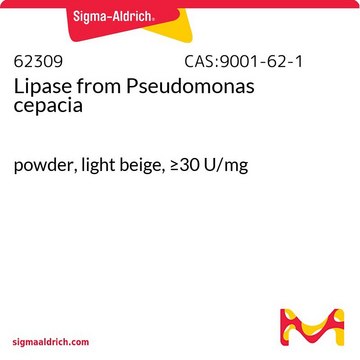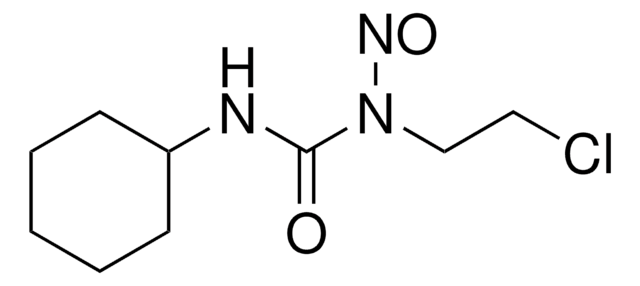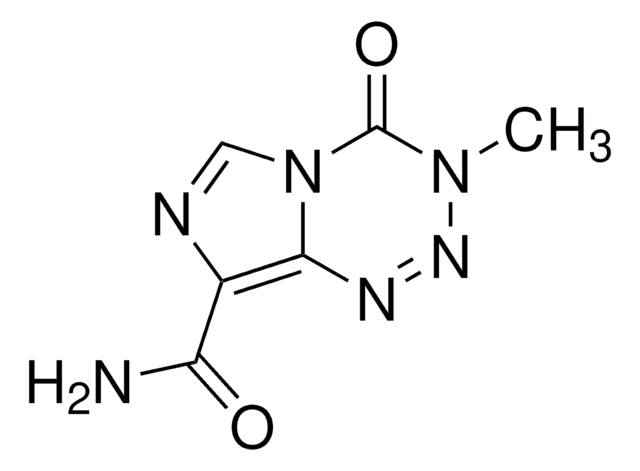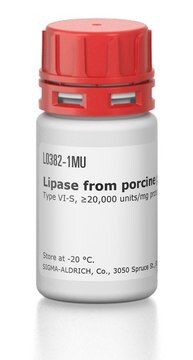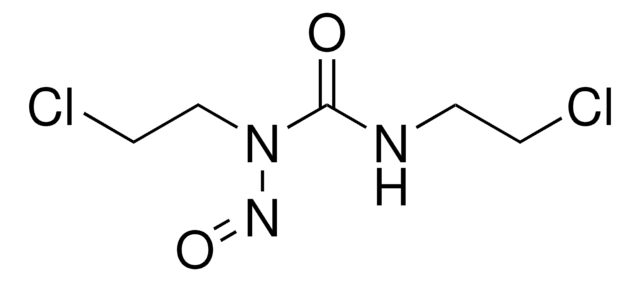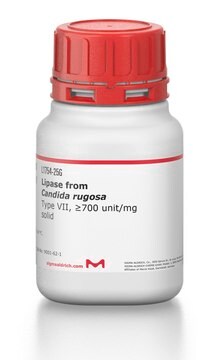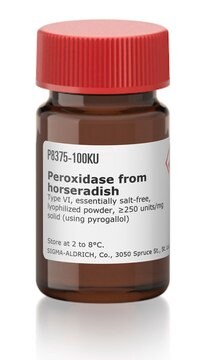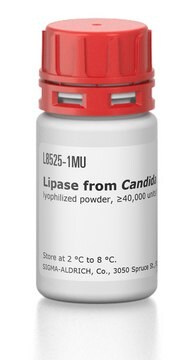L9518
Lipase from Pseudomonas sp.
Type XIII, lyophilized powder, ≥15 units/mg solid
Synonym(s):
Extracellular lipase, Triacylglycerol ester hydrolase, lip, Triacylglycerol acylhydrolase, Triacylglycerol lipase
About This Item
Recommended Products
type
Type XIII
form
lyophilized powder
specific activity
≥15 units/mg solid
mol wt
~134 kDa
composition
Protein, 40-65% biuret
storage temp.
2-8°C
General description
Lipases are part of the α/β-hydrolase fold superfamily of enzymes and are expressed in various tissues. For instance, hepatic lipases are found in the liver, lipoprotein lipase is located on the vascular endothelial surface, hormone-sensitive lipases are present in adipocytes, and pancreatic lipase is situated in the small intestine.
Application
- for enzymatic determination of triglyceride in serum when coupled with L-α- glycerophosphate oxidase (G3O-301, G3O-311, G3O-321) and glycerol kinase (GYK-301, GYK-311).
- in a study to assess enzymatic synthesis of biodiesel from palm oil assisted by microwave irradiation.
- in determining the triglyceride content for identifying the role of gut bacteria in host health.
- to determine the effect of lipase on high-density lipoprotein 2 (HDL2) and plasma in vitro.
Biochem/physiol Actions
Physical properties
Inhibitors : Hg++, Ag+, ionic detergents
Optimum pH : 7.0 - 9.0
Optimum temperature : 45 - 50oC
pH Stability : pH 7.0 - 9.0 (25oC, 20hr)
Thermal stability : below 55oC (pH 7.0, 10min)
Unit Definition
Physical form
Analysis Note
Storage Class Code
11 - Combustible Solids
WGK
WGK 3
Flash Point(F)
Not applicable
Flash Point(C)
Not applicable
Personal Protective Equipment
Certificates of Analysis (COA)
Search for Certificates of Analysis (COA) by entering the products Lot/Batch Number. Lot and Batch Numbers can be found on a product’s label following the words ‘Lot’ or ‘Batch’.
Already Own This Product?
Find documentation for the products that you have recently purchased in the Document Library.
Customers Also Viewed
Protocols
Enzymatic assay of lipase type XIII from Pseudomonas sp. using a coupled enzyme system of glycerol kinase and glycerophosphate oxidase (EC 3.1.1.3)
Our team of scientists has experience in all areas of research including Life Science, Material Science, Chemical Synthesis, Chromatography, Analytical and many others.
Contact Technical Service